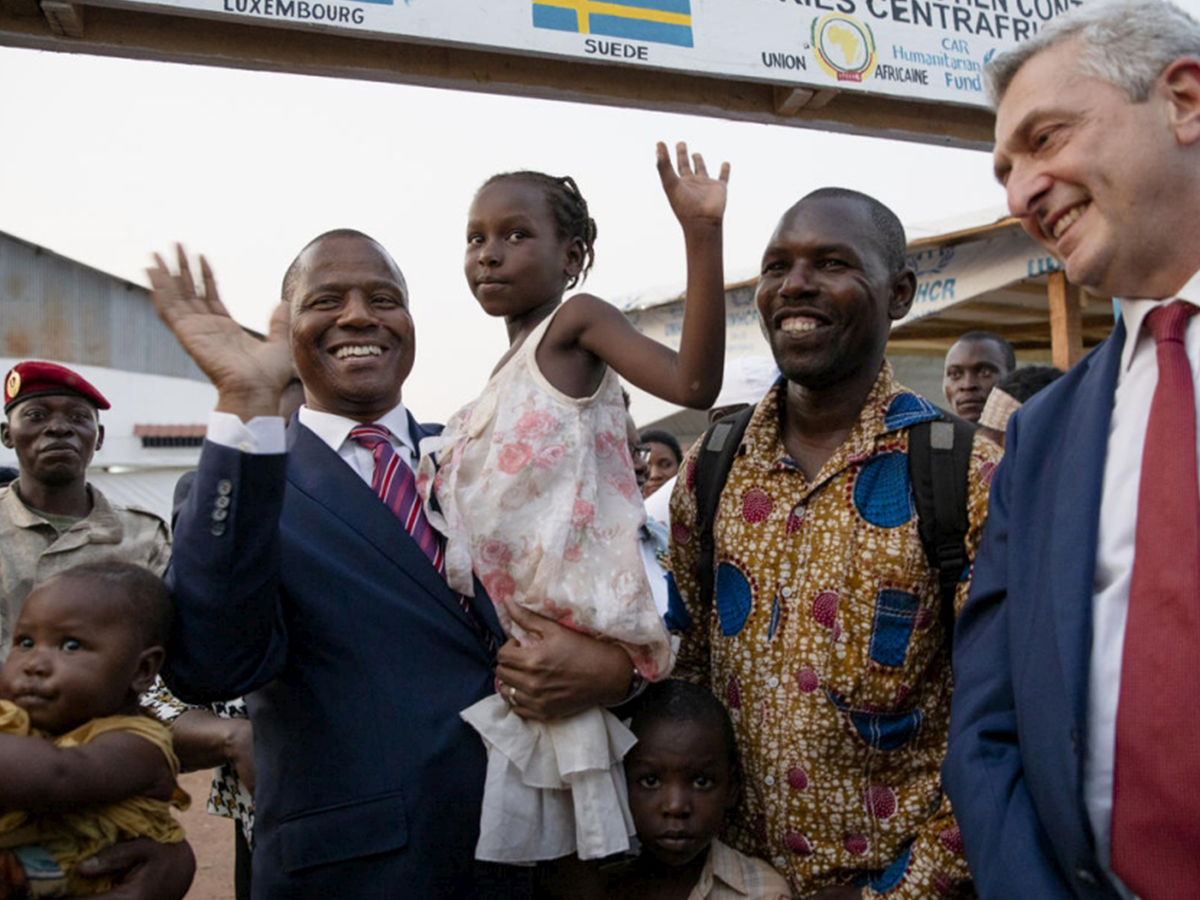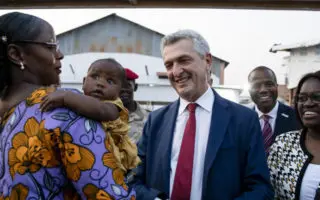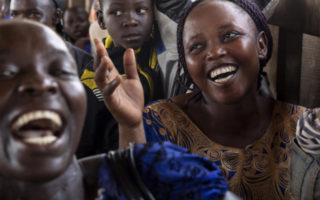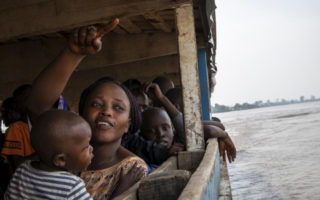
UN High Commissioner for Refugees Filippo Grandi (right) greets refugees on their return to Bangui, the Central African Republic. © UNHCR/Adrienne Surprenant
The UN High Commissioner for Refugees, Filippo Grandi, kicked off a three-day visit to the Central African Republic by welcoming 200 refugees newly returned from the Democratic Republic of Congo.
In a meeting with President Faustin-Archange Touadéra, the High Commissioner discussed the efforts needed to create conditions that would facilitate the voluntary returns of Central African refugees and of those forced to flee within their own country.
Grandi also acknowledged the generosity of the Central African Republic in welcoming some 7,500 refugees, despite the many challenges the country faces.
“Peace, security and development are essential to support the decision of refugees to return,” said Grandi. “By working together with the Government, humanitarian and development actors must ensure identified areas of return become more stable and self-sufficient for returnees and host communities. This means security, access to education, to health and to economic opportunities.”
The High Commissioner also encouraged the Central African Republic to adhere to the two major treaties on statelessness and to join the growing efforts to stamp out statelessness by 2024.
In Bangui port, Grandi welcomed 200 refugees who returned by boat from the Democratic Republic of Congo, as part of the voluntary repatriation programme for people forcibly displaced from CAR.
“This is a joyful day,” Grandi told the returnees who had disembarked moments earlier. “Returns are a barometer for peace. By coming home, you demonstrate an act of confidence that this country is indeed on its way to peace. It is now our responsibility to live up to your hopes and ensure that your return is sustainable.”
Similar voluntary returns are being facilitated by UNHCR for CAR refugees in Cameroon and the Republic of Congo. This latest return to CAR brings to 13,500 the number of refugees who have received UNHCR’s support since 2017. This is in addition to an estimated 127,000 spontaneous returns since 2016. Returnees said improved security in their areas of origin and the peace agreement between the CAR government and armed groups were the main reasons for their decision to return home.
There are nearly 600,000 refugees from CAR in neighbouring countries. A similar number remain displaced inside its borders. Voluntary returns are based on individual decisions. Continued protection in hosting countries or in places of displacement is be needed for those who do not feel safe to return home.
UNHCR, the UN Refugee Agency, leads international response to protect those forced to flee their homes because of conflict and persecution.
For more information on this topic, please contact:
- In Bangui, Romain Desclous, desclous@unhcr.org, +221 786 396 385
Originally published on UNHCR on 3 December 2019





